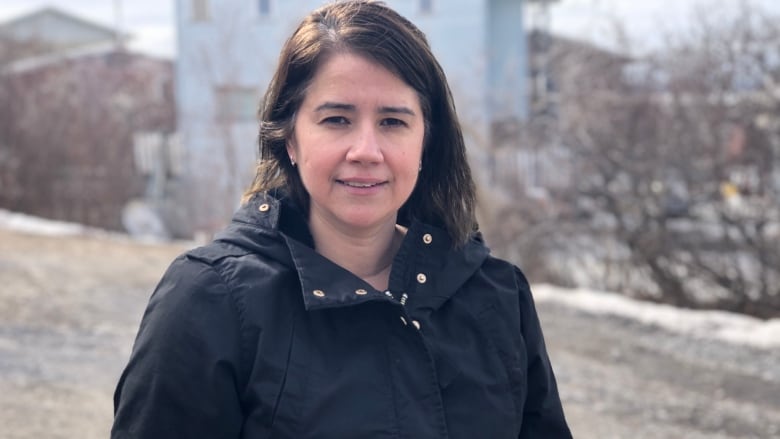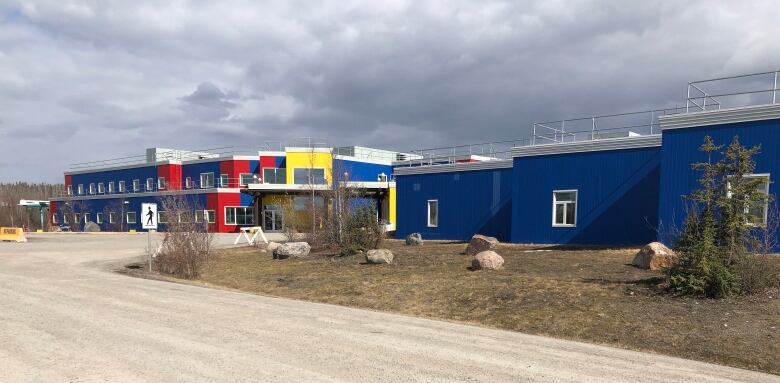Nurses consider ending permanent status over unequal treatment, says MLA
Lesa Semmler, a former nurse, says superior treatment of casual staff is a years-long issue

A Northwest TerritoriesMLA and former nurse says permanent nurses are frustrated withbenefits awarded to casual nurses over permanent staff, and that the divide has persisted for years.
Inuvik Twin Lakes MLA Lesa Semmlerraised the issue during a candidates forum during her campaign.
"Over the years, that practice of utilizing locums just increased to the point now where you probably have more locums in shorter-term contracts than you have permanent nurses."
In 2001, Semmler said there was just one locum nurse in the acute care unit. Earlier this month, Cabin Radio reportedthat Yellowknife nurses were disgruntled with their position and that permanency affords less flexibility and fewer benefits, creating problems for retention and job satisfaction.
Semmler saidthis is an issueshe's hearing from nurses throughout the territory including her home region of the Beaufort Delta. Locum nurses, for example, have their flights fully expensed and discounted housing in town.
No Christmas, no summer when short-staffed
For permanent staff, those perks don't exist.
"When you're working, and you're permanent, and you've lived here and you've made Inuvik your home. You pay taxes, you own a home," said Semmler.
"You are paying those $2,000flights, for not just you but your whole family to go for a vacation, and when you have somebody who's coming up every two or three months, they are getting their way paid for from anywhere in Canada and back home."
Semmler saidalthough locum nurses are essential to the N.W.T. health-care system, the reality is that nurses are leaving their permanent positions for more transient ones in the territory so they can have the same benefits.
"We've got nurses who actually live [in Inuvik]that are casual [instead of indeterminate] because they are not going to get denied all the time they put in for holidays," said Semmler.
"If you want holidays and we are short-staffed you don't get Christmas. You don't get summer. You don't get summer because that's peak season."
Semmler has seen these troubles in her position as a hiring manager, and filling permanent positions without any perks is a tough sell.
As a manager, she saw a permanent acute care nurse position sit vacant for two years. During the pandemic, casual nurses have been able to travel and work, while permanent staff had to use up earned vacation time to quarantine.
"It's not COVID, and it's not the matter of the nurses wanting to be able to travel out of the territory. It's the equality and being treated differently than locums and getting less than what locums are getting."
On May 12, Health Minister Julie Greensaid the health authority was meeting with the Union of Northern Workers (UNW)to investigate those concerns.
"We want to find remedies so that these nurses who feel that the isolation requirements are not fair to them have their concerns addressed," Cabin Radio first reported.
John Dempster, UNW Beaufort-Delta regional vice president, told CBC in a statement employers must be "fair and consistent"in their workplace policies, particularly with the added pressures the pandemic has put on workers. Dempster said staff can bring their concerns to the union.
"Our nurses are tired and under a lot of stress right now, and adding more issues to the workplace weakens morale and leads to more turnover," he said.

No financial incentive from N.W.T.
David Maguire, a spokesperson for the N.W.T.'s health authority, wrote in an email that outside the collective agreement, the authority isn't able to create financial incentives like recruitment or retention bonuses.
However, it offers educational funding opportunities to nurses and other healthcare professionals, such as $50,000 for indeterminate nurses to seek academic training, he said.
Maguire confirmed nurses are no longer given housing, though it's something they've previously received.Both casual and permanent staff have a provision saying they can be housed "on initial appointment," but employees are expected to secure housing after that time.
Since casual nurses are transient, the authority offers housing at $25 per day in Inuvik, or $750 per month. That's roughly half of what a typical one bedroom apartment costs in town per month.
In April, the authority updated essential worker exemptions that permit all health-care providers to go back to work on day four of isolation, provided they test negative for COVID-19 and they are fully vaccinated.
During those four days, the department encourages work-from-home arrangements. In certain circumstances, a front line service provider may return to work on day one and require a negative test and for that provider to self-monitor and self-isolate when not at work.
CBC confirmed the conditions described by MLA Lesa Semmler with one Inuvik nurse, who echoed more nurses are ending their permanent-indeterminate status for a more transient position.
As of Dec. 31, 2020, 16 of the 37 front line nursing positions were staffed by casuals "while open positions were being recruited for," wrote Maguire.
Projected nation-wide shortage
Between April 2020 and March2021, six permanent nurses left and nine were hired on. Of those nine hired, seven filled a permanent role, and two were relief nurses. Three of the nursing positions at the hospital are job shares, which means a couple of nurses fill one position throughout the year.
Maguire acknowledged there is "frustration as the global COVID-19 pandemic has disproportionately impacted front line healthcare workers."
He said the health authority's leadership is looking for feedback and a way to give nurses an avenue to voice their concerns.
Semmler said she stands by nurses and wants to see progress on issues that have existed since she was a nurse 15 years ago, when nurses considered establishing their own union so they could have their own bargaining.
Semmler said when the government tried to work on a plan to increase permanent nurses in the N.W.T. as a mandate, COVID-19 happened. She said she knows that the discrepancies increase animosity between colleagues.
"There's some work that needs to be done the territorial government has been struggling on how to have permanent nurses here," said Semmler.
"I hear the nurses it's about unfairness."
Across Canada, there is a projected shortage of nurses, nurse practitioners and licensed practical nurses between 2019 and 2028, wrote Maguire.
The authority is working with hiring managers to improve employee recruitment and retention.
Clarifications
- This story was updated on June 3 after an editing error removed links to Cabin Radio's reporting.Jun 03, 2021 6:05 PM CT
- This story has been updated to specify that Cabin Radio was first to report on the concerns of Yellowknife nurses and the health minister's public response.May 25, 2021 11:03 AM CT












_(720p).jpg)


 OFFICIAL HD MUSIC VIDEO.jpg)
.jpg)



























































































